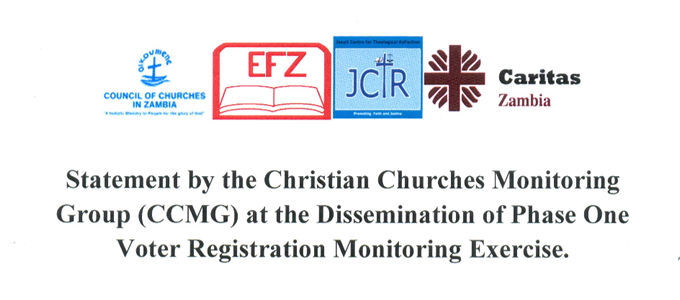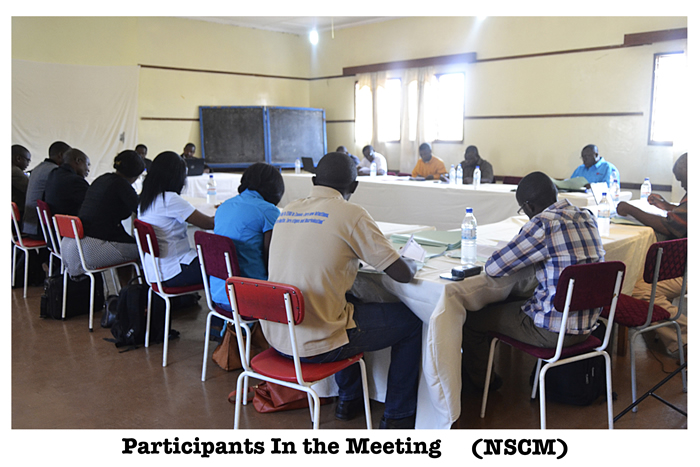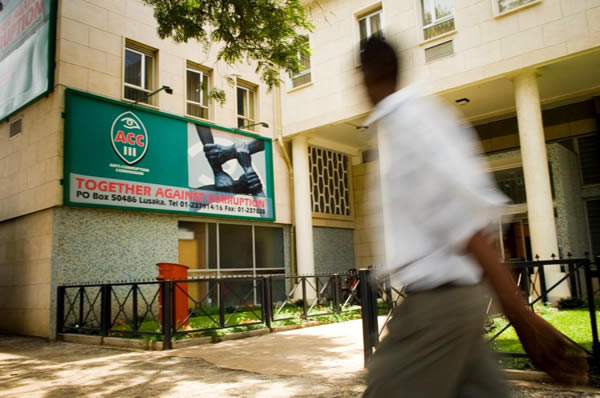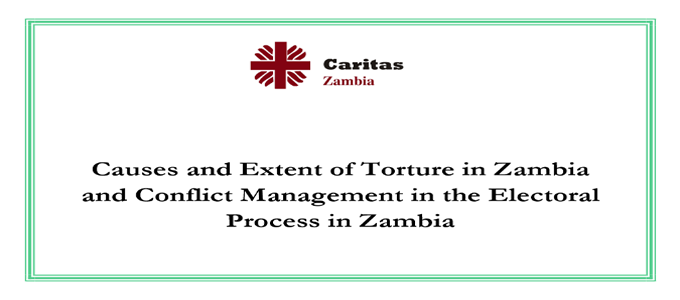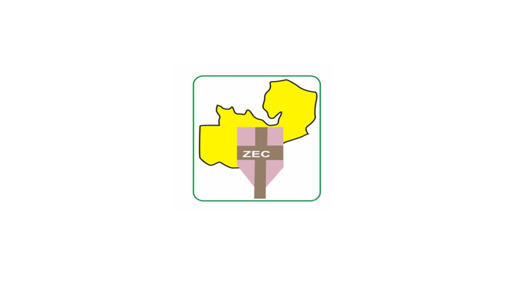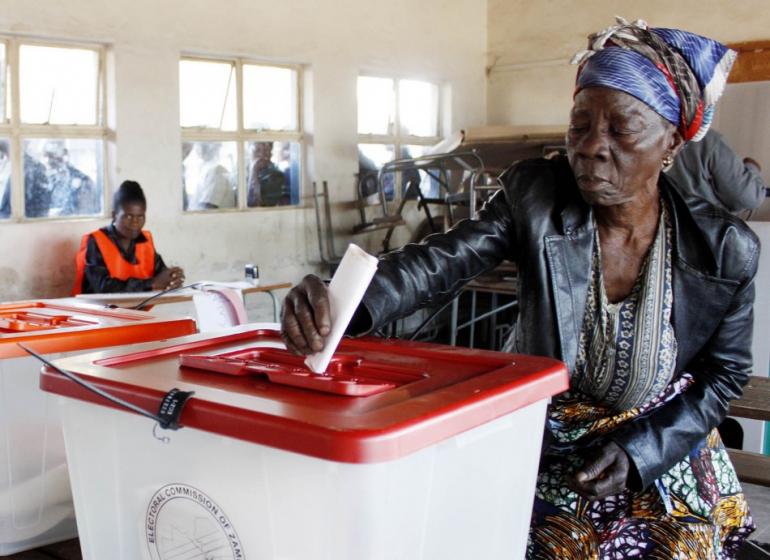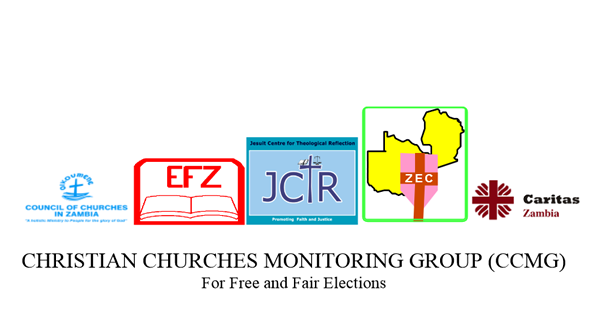Statement by the Christian Churches Monitoring Group (CCMG) at the dissemination of Phase one voter Registration Monitoring Exercise
The entire statement can be found here:
By Inonge Mutukwa
Kasama Archdiocese Pastoral Coordinator, Fr. Edward Mutale has commended Caritas Norway for continued support and dedication to uplifting the living standards of the poor people in Zambia through the Zambia Country Programme for Governance and Livelihoods.
Fr. Mutale was speaking during the official opening of a five day National Steering Committee meeting for the Zambia Country Programme for Governance and Livelihoods at Moto Moto Pastoral Centre in Kasama, on Monday 18th August, 2015. He urged the National Steering Committee member organizations, who include Caritas Zambia, Caritas Kasama, Caritas Mansa and Caritas Mpika, to take advantage of the meeting to discuss the sustainability of the programme as a way of keeping alive what has been achieved thus far.
CARITAS Zambia says the public is frustrated at the government’s failure to deal with perpetrators of corruption.
On Tuesday, Namwala council secretary Mabvuto Masiye was locked out of his office by fellow council workers for allegedly misappropriating K799, 000.
Commenting on the matter, Caritas executive director Samuel Mulafulafu said it was sad that corruption reports that the media was bringing out were not being acted upon by law enforcement wings and the government was tolerating it.
“I think the public is getting frustrated with the failure by government to deal with perpetrators of corruption, and if they do, the failure to inform the public of what they have done. We have had many reports coming out on such behaviour being exposed by the media. This is just one of those corruption cases being exposed and the public want to know, so I can understand what their frustration is about,” Mulafulafu said.
Causes and Extent of Torture in Zambia and Conflict Management in the Electoral Process in Zambia
1.0. Introduction
Torture has been carried out and in some cases sanctioned by individuals, groups, and states throughout history from ancient times to the modern times. Forms of torture can vary greatly in duration from only a few minutes to several days or even longer. Reasons for torture can include punishment, revenge, political re - education , deterrence, interrogation or coercion of the victim or a third party, or simply the sadistic gratification of those carrying out or observing the torture.
The desire to torture a person is thought to be as a result of internal psychological pressure in the psyche of the torturer. The torturer may or may not intend to kill or injure the victim, but sometimes torture is deliberately fatal an d can precede a murder or serve as a cruel form of capital punishment . In other cases, the torturer may be indifferent to the condition of the victim.
PRESS RELEASE
ZAMBIA EPISCOPAL CONFERENCE (ZEC)
Statement on the 20th January 2015 Presidential Election
1. INTRODUCTION
On 20th January 2015, Zambians went to the polls to elect 6th Republican President following the demise of President Michael Chilufya Sata, on28th October 2014.May he rest in peace. We, the Catholic Bishops in Zambia, congratulate Mr. Edgar Lungu on his election as Zambia’s Sixth President. We wish God’s rich and abundant blessings in his leadership of the Zambian nation.We commend the other ten candidates who participated in the election for exercising their constitutional right to participate in one of our democratic processes.
As part of its overall effort to observe the 2015 presidential election, the Christian Churches Monitoring Group (CCMG) conducted a Parallel Vote Tabulation (PVT). The PVT methodology provides independent assessment of official results based on the official announced and posted results from a nationally representative sample of polling stations and polling streams selected by a trained statistician.
1. Introduction
The Christian Churches Monitoring Group (CCMG) is a monitoring coalition comprising four faith based organizations namely, the Council of Churches in Zambia (CCZ), the Evangelical Fellowship of Zambia (EFZ), the Jesuit Centre for Theological Reflection (JCTR) and the Zambia Episcopal Conference (ZEC) and with Caritas Zambia under ZEC. The Chief Executives of CCZ, EFZ, JCTR and ZEC serve as CCMG’s Steering Committee. Now that Electoral Commission of Zambia (ECZ) h as announce d the official results , CCMG is able to independently verify the accuracy of the presidential election results.
1. Introduction
The Christian Churches Monitoring Group (CCMG) comprises four faith based organisations namely, the Council of Churches in Zambia (CCZ), the Evangelical Fellowship of Zambia (EFZ), the Jesuit Centre for Theological Reflection (JCTR) and the Zambia Episcopal Conference (ZEC) and with Caritas Zambia under ZEC. The Chief Executives of CCZ, EFZ, JCTR and ZEC serve as CCMG’s Steering Committee and all of the monitors were carefully selected from these partner organisations.
The entire statement in PDF format can be found here:
1. Introduction
The Christian Churches Monitoring Group (CCMG) has deployed a total of 1,10 8 trained and accredited monitors for the 2015 presidential elections : 105 roving monitors, 300 general monitors and 703 PVT monitors . The PVT monitors deployed to a carefully selected nationally representative sample of 703 polling streams located at 501 polling stations in every province, district and constituency of the country. PVT Monitors report in near real time by sending in observer reports throughout the day via coded text messages.
As of 11 00 hrs CCMG ’ s PVT monitors report ed that across the country the vast majority of polling stations open ed and had all their necessary supplies . This is based on reports fr om 6 48 of CCMG ’ s 703 PVT monitors ( 9 2 %) located in every province and every district (except Chama) .
Those CCMG PVT monitors who have not yet reported do not have cell phone coverage ; they wil l report at a later time.
The Press Stament issued by the Christian Churches Monitoring Group (CCMG) on Friday, 16th January 2015 can be found here: http://caritaszambia.org/index.php/publications/general/file/71-ccmg-press-statement-16th-january-2015
- Church urges scrutiny of presidential candidates
- Pay The Farmers Now And Stop This Heartless Injustice
- Multi Media
- Videos
- CARITAS Zambia Profile
- Our Structures
- Our Vision, Mission Statement, Organizational Values and Startegic Focus Areas
- PROGRAMME V: Organisation Development Programme (ODP)
- PROGRAMME IV: Conflict Transformation and Peace Building Programme (CTPBP)
- PROGRAMME III: Livelihoods and Climate Change Adaptation Programme (LCCAP)
About Caritas Zambia
Caritas Zambia is a Catholic Organisation that is an integral structure of the Zambia Conference of Catholic Bishops (ZCCB). The Conference of Bishops is a permanent grouping of Bishops of a given nation or territory that jointly exercises certain pastoral functions on behalf of the Christian faithful of their territory. This is done for the sake of effective evangelisation. To promote the principle of the common good which the Church offers humankind, especially through forms and programmes of the apostolate which are fittingly adapted to the circumstances of the time and place, is the role of Bishops.
Kapingila Hse, Kabulonga Rd, Plot BRT6, P.O.Box 31965, Lusaka 10101, Zambia.
Tel: +260-211-260980 | +260-211-261789

